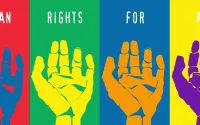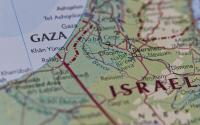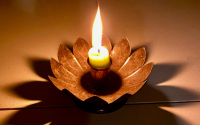March 1 2011
CAIRO - A miracle happened to S.'s neighbors: They bought their son an apartment in a new housing project in a Cairo neighborhood. Everything was ready but for the electricity meter to indicate that the place was connected to the grid. For five years they, and others, had chased in vain after the clerk in charge of approving the installation. Then suddenly, a week or two after the revolution, the permit arrived.
S. cooks in people's homes, mainly from the middle class. She never talked about politics or shared her thoughts. Occasionally she would exhaust her audience with do's and don'ts for the modest woman. But now she smiles, forgets her sermons and marvels at the miracles all around her.
Is there a meaning to the meter? Was it just a coincidence, or did it hide a chain of petty officials waiting for a salary-supplementing bribe? Everyone assumes the revolution did something to the bureaucracy, that the petty officials realize that someone could demand an accounting, that the little abuses as well as the big ones will no longer be swallowed meekly.
The same thing happened to the sidewalk produce peddler in Masr el-Gedida ("New Egypt" ). Before the uprising, he would erect his stall and city inspectors would come and confiscate, take apart, ruin. The same for his counterparts in Dokki, who were hunted by inspectors and police officers. As soon as someone saw an official down the street a runner would warn the peddlers, who would pack up hastily and disappear; or be caught, in which case they'd return in a few days, because that was their livelihood.
Of all the urban ills, were the produce peddlers - part of the unofficial economy that supports millions of Egyptians - at the top of the agenda? One might have thought so, judging from the fervor with which their stalls were destroyed. It was such fervor that led the Tunisian produce vendor Mohammed Bouazizi, to ignite both himself and the Arab revolution.
The Masr el-Gedida vendor now has a beautiful, well-stocked stall, and so far no one has attacked him. Coincidence? Busy officials? Have the despised police not yet been ordered to go out and keep the public order? Or are unpopular senior officials now hearing bells telling them to consider these people, who cannot find another way to earn a living? Do you want them demonstrating at city hall or the Ministry of Solidarity and Social Justice now, when no one dares to disperse the protests springing up like mushrooms and disrupting traffic? That's a much bigger headache than a fruit stall.
This is the hidden hand of the revolution, that without instructions sends messages to officials telling them to behave. Is this a standing order, or will it fade away? In the meantime the people are benefiting from the hidden hand. It is as if a heavy sheet of iron has been torn away from everything. Call it fear, helplessness, suppressed anger, futility, grumbling. All at once.
But at the end of the second week after President Hosni Mubarak was deposed, one could sense a new nervousness. A young thug drove the wrong way down a one-way street. The woman driving in the opposite direction wanted to insist on her right to keep going; the shopkeepers urged her to let it go, to let him pass. When she finally did so, he shouted: "You all didn't want the police so you get chaos instead." And she shouted back, "What you're from the security service?"
Perhaps not, but people are now talking about "the return of the bullies" - emissaries of the old order who are signaling that they don't intend to go quietly.
A meeting between two friends is delayed: there are problems at the work place of one of the women, which has to do with the opposition to Mubarak. Out of the blue, a swarm of thugs appears, bullying and threatening people. It's been going on for three days already. The phone call was light on details, but others too sense the presence of a real but hidden hand that is attempting to screw things up. There are undeciphered signals that evoke anxiety.
At a small victory party attended by many foreigners, a European historian said not to expect great change, perhaps only in regard to freedom of expression and a few other liberal freedoms. The army has strong, personal vested interests in the existing system, she said. Any retiring general gets a position in local government, or heading a government factory. Sounds familiar to an Israeli listener. The decisive determinism angered an Egyptian listener. After all, the struggle continues.
• • •
Beggars, who have not been seen in public for several years, have allowed themselves to return and to prick the conscience of passersby, like the man on a traffic island on 6 October Bridge, who took advantage of the sudden freedom to bring alone a stroller with a paralyzed 6-year-old girl inside, who stared at the flow of traffic, enveloped in exhaust fumes.






